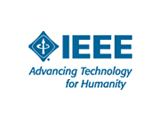
IEEE, IAB, IETF, Internet Society and W3C Invite Other Standards Organizations, Governments and Companies to Support Modern Paradigm for Global, Open Standards
Shuang Yu, for IEEE Standards Association
+1 732 981 3424; shuang.yu@ieee.org
Marilyn Siderwicz, for W3C
+1 617 258 5263; msiderwicz@w3.org
Wende Cover, for IAB, IETF and Internet Society
+1 703 439 2773; cover@isoc.org
PISCATAWAY, N.J., and WASHINGTON, D.C., United States; GENEVA, Switzerland, and http://www.w3.org/, 29 August 2012 – Five leading global organizations—IEEE, Internet Architecture Board (IAB), Internet Engineering Task Force (IETF), Internet Society and World Wide Web Consortium (W3C)—today announced that they have signed a statement affirming the importance of a jointly developed set of principles establishing a modern paradigm for global, open standards. The shared “OpenStand” principles—based on the effective and efficient standardization processes that have made the Internet and Web the premiere platforms for innovation and borderless commerce—are proven in their ability to foster competition and cooperation, support innovation and interoperability and drive market success.
IEEE, IAB, IETF, Internet Society and W3C invite other standards organizations, governments, corporations and technology innovators globally to endorse the principles, which are available at the OpenStand Web site.
The OpenStand principles strive to encapsulate that successful standardization model and make it extendable across the contemporary, global economy’s gamut of technology spaces and markets. The principles comprise a modern paradigm in which the economics of global markets—fueled by technological innovation—drive global deployment of standards, regardless of their formal status within traditional bodies of national representation. The OpenStand principles demand:
cooperation among standards organizations;
adherence to due process, broad consensus, transparency, balance and openness in standards development;
commitment to technical merit, interoperability, competition, innovation and benefit to humanity;
availability of standards to all, and
voluntary adoption.
“New dynamics and pressures on global industry have driven changes in the ways that standards are developed and adopted around the world,” said Steve Mills, president of the IEEE Standards Association. “Increasing globalization of markets, the rapid advancement of technology and intensifying time-to-market demands have forced industry to seek more efficient ways to define the global standards that help expand global markets. The OpenStand principles foster the more efficient international standardization paradigm that the world needs.”
Added Leslie Daigle, chief Internet technology officer with the Internet Society: “International standards development for borderless economics is not ad hoc; rather, it has a paradigm—one that has demonstrated agility and is driven by technical merit. The OpenStand principles convey the power of bottom-up collaboration in harnessing global creativity and expertise to the standards of any technology space that will underpin the modern economy moving forward.”
Standards developed and adopted via the OpenStand principles include IEEE standards for the Internet’s physical connectivity, IETF standards for end-to-end global Internet interoperability and the W3C standards for the World Wide Web.
“The Internet and World Wide Web have fueled an economic and social transformation, touching billions of lives. Efficient standardization of so many technologies has been key to the success of the global Internet,” said Russ Housley, IETF chair. “These global standards were developed with a focus toward technical excellence and deployed through collaboration of many participants from all around the world. The results have literally changed the world, surpassing anything that has ever been achieved through any other standards-development model.”
Globally adopted design-automation standards, which have paved the way for a giant leap forward in industry’s ability to define complex electronic solutions, provide another example of standards developed in the spirit of the OpenStand principles. Another technology space that figures to demand such standards over the next decades is the global smart-grid effort, which seeks to augment regional facilities for electricity generation, distribution, delivery and consumption with a two-way, end-to-end network for communications and control.
“Think about all that the Internet and Web have enabled over the past 30 years, completely transforming society, government and commerce,” said W3C chief executive officer Jeff Jaffe. “It is remarkable that a small number of organizations following a small number of principles have had such a huge impact on humanity, innovation and competition in global markets.”
Bernard Aboba, chair of the IAB: “The Internet has been built on specifications adopted voluntarily across the globe. By valuing running code, interoperability and deployment above formal status, the Internet has democratized the development of standards, enabling specifications originally developed outside of standards organizations to gain recognition based on their technical merit and adoption, contributing to the creation of global communities benefiting humanity. We now invite standards organizations, as well as governments, companies and individuals to join us at the OpenStand Web site in order to affirm the principles that have nurtured the Internet and underpin many other important standards—and will continue to do so.”

























